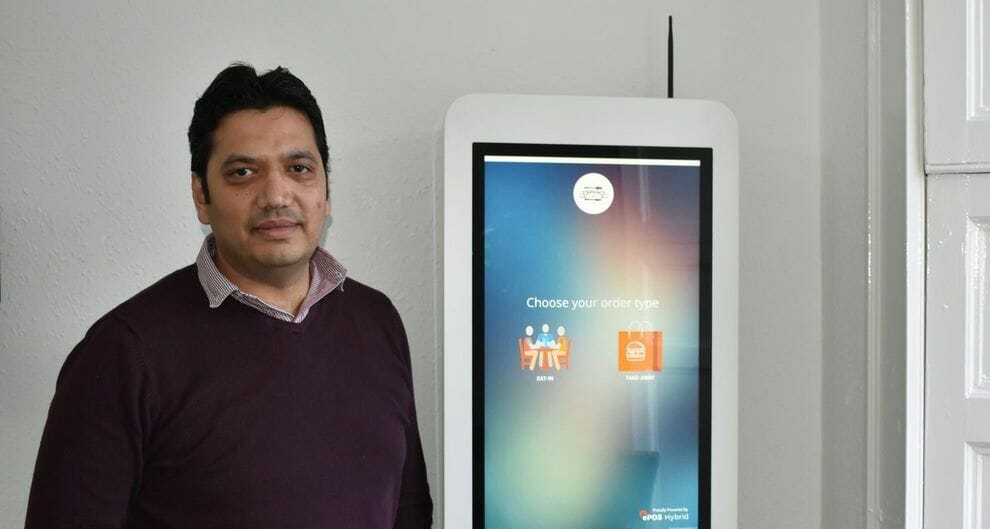Restaurants across the UK may be under intense short-term pressure due to the widening Covid-19 pandemic. But that has not dampened crowd enthusiasm for a restaurant tech offering from Edinburgh’s ePOS Hybrid, which has just closed its first crowdfunding round via Crowdcube at £400,000.
The company has been rolling out a digital hospitality management point of sale system that integrates and processes self-checkouts, as well as ordering via apps, or online, or even from “smart table” menus. The company’s software plots out table occupancy rates and charts reservations, along with monitoring food waste reporting. But as public places empty out with the onset of mass quarantines and self-isolation, the company is well-positioned to support delivery tech as well; its software keeps track in real-time the processing and completion of driver deliveries.
Allergic reactions
The system also helps restaurants navigate food safety compliance relating to allergies, a sensitive topic in the UK as laws come into force following the death of Natasha Ednan-Laperouse, a British teenager who died after an allergic reaction to a Pret A Manger baguette.
The company management claims to have soft circled an initial target of £250,000. But it zipped past that halfway through its campaign, getting to its 400,000 close with the help of 168 backers.
The company surpassed its target halfway through the campaign and has gained another 89 backers for the final stages of the fundraiser, bringing the total number to 168. According to initial reports, the biggest contributors were a hitherto undisclosed Silicon Valley-based company with a $50,000 (£42,000) investment, and a lone Australian investor who forked out £100,000.
The founder and CEO of ePOS Hybrid is Bhas Khalangi, a computer scientist. In a Vimeo post sent to AFN during the fundraiser, Khalangi expressed surprise at how few small restaurant owners had adopted these technologies to keep up with changing consumer preferences. “We risk breaking the relation between restaurant and consumer,” he warned. “Despite this, 84% of UK hospitality businesses are using little to no technology (at the point of sale) and are struggling to stay competitive.”
Self-Serv-ival of the fittest
ePOS Hybrid projects revenues of £22 million and plans to gain a customer base of over 12,000 by May 2023. That is an optimistic projection, a habit of countless startups. But what can be said with greater certainty is that the wider opportunities at this juncture of restaurant tech are there, as seen by the big strides made by companies like Brightloom in San Francisco with their “digital flywheel,” or AgFunder’s investment last year into Arizona’s TRAY — a round spearheaded by Leonardo Fonseca, a former CFO at General Electric O&G. “Self-serve, whether by kiosk, web, or app,” Fonseca wrote on AFN at the time, “is fast becoming a must-have for every restaurant, and the potential for this market is enormous — $30.8 billion by 2024. Not only do self-serve kiosks address soaring labor costs that are squeezing restaurants and shuttering many small businesses, but it turns out customers also prefer self-serve kiosks. And that’s just the appetizer. The emergence of self-serve kiosks could be the iPhone moment for the restaurant industry. Forget looking for Yelp reviews. Instead, you’re going to walk into a restaurant and with the swipe of your credit card, get a personalized menu based on what’s popular and items you’ve ordered before at other restaurants. Are you a vegetarian, have peanut allergies, lactose intolerant, or on a keto diet? No problem, the menu will present you with suitable choices.”
“Once you create a smart interactive interface with the customer,” he added, “it opens opportunities we can’t even imagine yet. It’s no wonder that McDonald’s apparently spent around $100 million developing their own automated order kiosks. Not everyone has the budget of a Fortune 500 company, so who is going to serve the other 650,000 restaurants in the US?”
Reducing interactions with human servers is increasingly essential right now as consumers are in or approaching lockdown in multiple cities worldwide due to the rapid spread of the Covid-19 virus. US-based Radius Networks recently announced plans to offer a free version of its FlyBuy curbside pickup software to all restaurants and retailers.
“Restaurant dine-in is already down as much as 75%, with many states, including Ohio, Illinois, Massachusetts, and Georgia, banning dine-in services altogether and the State of New York and California significantly limiting in-store capacity,” reads a blog on the company’s website. “Our current partners are already showing an average of 60% more curbside pickup orders within the last 3 days alone. In response, FlyBuy Pickup, a core service of Radius Networks, is providing a free version for restaurants and retailers for the next 90 days so they can implement contactless curbside pickup.”
Similar to ePOS Hybrid, FlyBuy Pickup uses proprietary machine-learning technology to accurately calculate a customer’s arrival time and on-premise location for curbside and in-store pickup programs. As the customer travels to the location, the store is provided with their accurate ETA and real-time alerts along their journey. Staff can efficiently prioritize the fulfillment of orders based on which customers will arrive first. Customers will be met at the curb upon arrival and can simply drive up, open the boot (trunk to my American friends) or open the window, and go with minimal human interaction or contact.
Will robotic retail and human interaction-less technologies get an extra boost in foodtech investment in the wake of the virus? What do you think? Email [email protected].





